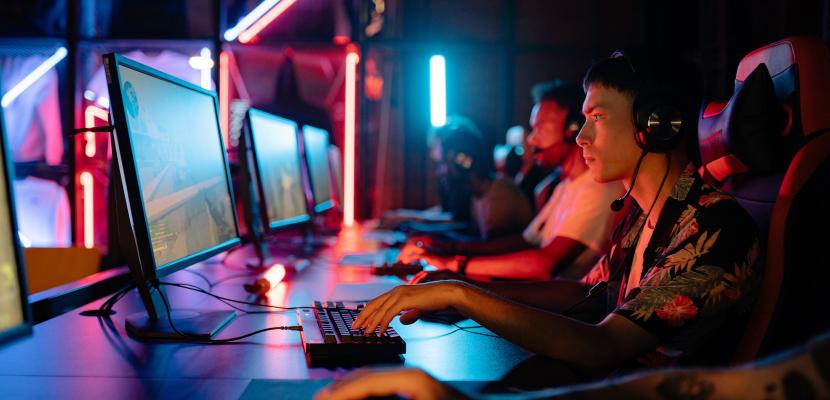
James Birt is an Associate Professor in Computer Games within the Faculty of Society and Design at Bond University.
With the 2032 Brisbane Olympics just 10 years away, the Queensland Academy of Sport (QAS) is already ramping up plans to identify and foster elite sporting talent for the Brisbane Games.
The Youfor32 campaign is targeting aspiring Olympians aged 13-23 and Paralympians aged 13-30 through a series of talent identification testing sessions by QAS staff and high-performance coaches. Those showing the most promise will be offered a three-month trial in their sport.
The campaign offers a wonderful opportunity for students and young people with exceptional athletic ability, and the proactive nature of the QAS approach will ensure that Australia continues to be competitive at the elite international level across a range of sports.
But there’s one arena in which this proud sporting nation will fall behind unless we take action now. Esports is one of the fastest-growing global industries, with millions of engaged and dedicated fans and it is well and truly on the Olympic radar. The inclusion of esports as a demonstration event in the Tokyo Olympics means it’s highly likely to end up as a medal event in future Games.
But esports has an image problem. It’s not seen as a ‘real’ sport, despite the level of athleticism, drive and commitment required to win at an international level. In a country where sport is so revered, we’re letting a huge swathe of potential Olympians slip through our fingers because we aren’t identifying and developing them early.
Without an athletic pathway for esports, Australia will never be competitive at the elite international level, it is as simple as that. For Australian esports to reach its full potential, we need to take a leaf out of the QAS book and start developing talent right now.
And that begins with breaking down the stereotypes that have dogged esports for so long. Developing the lightning reflexes, stamina and mental strength of esports players at an international level requires the same commitment and dedication as training for the 1500m freestyle. But the ‘gamer tropes’ remain – dead-eyed teens in their mother’s basement glued to a screen. People still see it as a hobby and don’t understand the professionalism that’s required to operate at that level.
Esports athletes have to be fit, they have to be mentally tough, they have to have endurance, dexterity and incredible strength of mind to be able to endure the training and to be able to perform under pressure at that elite international level.
Having esports included as an Olympic medal event will help to start shifting the perception that esports aren’t ‘real’ sports, but if Australia doesn’t step up before that happens, we’ll be too far behind other nations to be truly competitive at the elite level.
If we want to add another sport to our Olympic gold rush list, we need to be able to attract the right individuals within the esports context, retain them and ensure they are getting the right training to be competitive in that international elite environment.
Unless we do that Australia won’t find success and we know how much Australians love to win.

